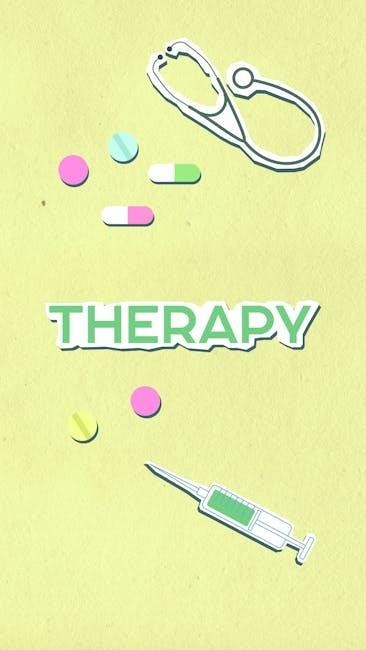drug test consent form pdf
A drug test consent form is a legal document authorizing individuals to undergo drug testing. It ensures compliance with workplace, school, or licensing requirements, outlining the testing process and privacy protections. This form is essential for maintaining safety and adhering to regulations, providing a clear agreement between the individual and the testing authority.
1.1 What is a Drug Test Consent Form?
A drug test consent form is a legal document authorizing individuals to undergo drug testing. It outlines the purpose, type of test, and privacy protections. This form ensures voluntary consent, protecting both the individual and the requesting party. Signed before testing begins, it verifies agreement to procedures like urine, blood, or saliva analysis, addressing confidentiality and legal compliance while maintaining trust and accountability in various settings.
1.2 Purpose of the Consent Form
The purpose of a drug test consent form is to obtain voluntary agreement from individuals to undergo drug testing. It ensures compliance with workplace, school, or licensing requirements, promoting safety and preventing substance abuse. The form also protects privacy and legal rights, providing clear guidelines for the testing process and maintaining accountability in various settings, ensuring transparency and fairness throughout the procedure.
Importance of Drug Test Consent Forms
Drug test consent forms are crucial for ensuring legal compliance, protecting privacy, and maintaining trust between individuals and organizations. They prevent disputes and ensure fair testing practices.
2.1 Why Consent is Necessary
Consent is necessary to respect individuals’ rights and privacy, ensuring voluntary participation in drug testing. It establishes legal protection for both parties, preventing coercion and potential disputes. By signing, individuals acknowledge understanding of the testing process and its implications, fostering trust and accountability in workplaces, schools, or other regulated environments. Compliance with laws and policies is also ensured through consent.
2.2 Legal Implications of Refusing to Sign
Refusing to sign a drug test consent form can lead to serious consequences, including loss of employment, driving privileges, or eligibility for school activities. It may be treated as a positive test result, triggering disciplinary actions. In workplaces, refusal can result in termination or denial of job offers. Legal implications vary by jurisdiction and employer policies, emphasizing the importance of compliance to avoid adverse outcomes.

Types of Drug Test Consent Forms
Drug test consent forms vary based on purpose and context. Common types include pre-employment testing for job applicants and random testing for current employees to ensure workplace safety.
- Pre-Employment: Required for job applicants to ensure drug-free hiring.
- Random Testing: Applied to existing employees to maintain a safe work environment.
3.1 Pre-Employment Drug Testing Consent
Pre-employment drug testing consent forms are mandatory for job applicants. They authorize employers to conduct drug tests as part of the hiring process. This ensures a drug-free workplace and protects employer liability. The form outlines the testing procedure and specifies prohibited substances. Applicants must sign voluntarily, and refusal may disqualify them from employment. It’s a standard practice in many industries.
3.2 Random Drug Testing Consent
Random drug testing consent forms ensure ongoing compliance with workplace safety standards. Employees agree to submit to unannounced tests, maintaining a drug-free environment. This form outlines the testing method and confidentiality measures. Participation is typically mandatory for employment continuation. Refusal may lead to disciplinary action, emphasizing the importance of voluntary consent to uphold workplace integrity and legal standards.
Legal Considerations
Drug test consent forms must comply with federal and state laws, ensuring privacy and due process. They prevent legal disputes by establishing clear guidelines and employee consent.
4.1 Federal Regulations on Drug Testing
Federal regulations govern drug testing procedures, ensuring they are conducted fairly and respectfully. Employers must comply with laws like the Americans with Disabilities Act (ADA) and the Department of Transportation (DOT) rules. These regulations protect employee rights while maintaining workplace safety. Consent forms must adhere to these standards to avoid legal issues and ensure validity.
4.2 State-Specific Laws and Variations
State laws on drug testing vary significantly, requiring tailored consent forms. Some states mandate strict privacy protections, while others allow broader testing authority. For example, California enforces stringent rules on employee testing, while Florida permits random testing under specific conditions. Employers must ensure their consent forms align with both federal and state regulations to maintain compliance and avoid legal disputes.
Components of a Drug Test Consent Form
A drug test consent form includes personal information, type of test, consent statement, and signature. It outlines confidentiality, purpose, and employer policies, ensuring clarity and compliance.
5.1 Personal Information Section
The personal information section typically includes the individual’s full name, date of birth, contact details, and signature. This ensures identification and authentication of the consent, maintaining legal validity. It may also include an employee ID or driver’s license number for verification purposes, depending on the organization’s requirements. Accuracy is crucial to avoid discrepancies.
5.2 Type of Drug Test (Urine, Blood, Saliva, Hair)
The form specifies the drug test type, such as urine, blood, saliva, or hair samples. Each method has different detection periods and purposes. Urine tests are common for general screening, while blood tests measure current impairment. Saliva tests detect recent use, and hair tests provide long-term history. The chosen method must align with the testing policy’s objectives and legal requirements.
5.3 Consent Statement and Signature
The consent statement confirms the individual’s voluntary agreement to undergo drug testing. It outlines the understanding of the testing process and the consequences of refusing or failing the test. The signature section validates the form, requiring the individual’s name, date, and witness signature if necessary. This ensures the form’s legality and mutual understanding between the parties involved.

How to Create a Drug Test Consent Form
Download a template or draft the form, ensuring it includes personal information, test type, and a clear consent statement. Customize it for specific needs and ensure compliance with legal standards. Use digital tools for easy editing and e-signing, making it accessible and efficient for both parties to complete.
6.1 Steps to Draft the Form
Start by selecting a suitable template or format. Include sections for personal details, test type, and consent statement. Define the purpose and method of testing. Add a signature section for acknowledgment. Ensure legal compliance by consulting regulations. Review and finalize the form, then distribute for signing. Use digital tools to streamline creation and signing processes for efficiency.
6.2 Digital Tools for Creating and Signing
Use digital tools like PDF editors or e-signature platforms to create and customize drug test consent forms. Tools like Adobe Acrobat, DocuSign, or Google Docs allow easy editing and sharing. Include electronic signature fields for convenience. Ensure forms are HIPAA-compliant for confidentiality. These tools enhance efficiency, streamline workflows, and provide secure storage for completed forms, making the process organized and accessible.

Workplace Drug Testing Policies
Workplace drug testing policies ensure a safe environment, comply with laws, and maintain productivity. They outline testing procedures, confidentiality, and consequences, fostering a drug-free workplace culture.
7.1 Employer Responsibilities
Employers must ensure drug testing policies are fair, legal, and communicated clearly. They must obtain consent, maintain confidentiality, and provide timely results. Employers are responsible for training staff, selecting reliable testing methods, and handling positive results appropriately, ensuring compliance with federal and state laws to avoid legal disputes and protect employee rights.
7.2 Employee Rights and Confidentiality
Employees have the right to privacy and fair treatment during drug testing. Employers must ensure test results are kept confidential and shared only on a need-to-know basis. Employees should be informed of their rights, including the right to refuse testing (where permitted) and access to results. Violations of privacy can lead to legal consequences for employers, emphasizing the importance of strict confidentiality protocols;

Handling Drug Test Results
Drug test results are confidentially managed to ensure privacy and fairness. Positive results may lead to disciplinary actions, while negatives confirm compliance, maintaining trust and workplace integrity.
8.1 Confidentiality of Results
Drug test results are treated with strict confidentiality to protect individual privacy. Employers and testing entities must adhere to privacy laws, ensuring results are shared only on a need-to-know basis. Access is typically limited to authorized personnel, and improper disclosure can lead to legal consequences. This safeguard maintains trust and prevents potential discrimination or misuse of sensitive information.
8.2 Consequences of Positive Results
A positive drug test result can lead to disciplinary actions, including suspension, termination, or mandatory rehabilitation programs. Employers may revoke job offers or driving privileges, depending on company policies. In some cases, individuals may face legal repercussions. However, exceptions exist for legally prescribed medications. Clear communication of consequences in the consent form ensures understanding and compliance with organizational or legal standards, minimizing disputes and ensuring fair treatment.

Drug Test Consent Form Templates
Drug test consent form templates are readily available online, offering customizable solutions for employers and organizations. These templates ensure compliance with legal standards while streamlining the consent process.
9.1 General Drug Testing Consent Form
A general drug testing consent form is a versatile template used across various industries. It typically includes sections for personal information, the type of test, and a signature area. Employers and organizations can customize it to fit their specific needs while ensuring compliance with legal requirements. This form is widely available online in PDF format for easy download and use.
9.2 Workplace-Specific Templates
Workplace-specific drug test consent templates are tailored to industry needs, ensuring compliance with employer policies. These forms often include sections for employer details, test types, and confidentiality agreements. They may also outline consequences of refusal or positive results. Industries like transportation or healthcare often require customized versions, ensuring alignment with sector-specific regulations and workplace safety standards.

State-Specific Drug Testing Laws
Drug testing laws vary by state, impacting consent requirements and employer policies. Some states mandate strict guidelines, while others allow more flexibility, influencing workplace drug testing practices.
10.1 Variations in Consent Requirements
Consent requirements for drug testing vary significantly across states. Some jurisdictions mandate explicit written consent, while others allow verbal agreements. Certain states require parental consent for minors, while others have specific exemptions for public employees. These variations ensure compliance with local laws and protect individual rights, making it essential to tailor consent forms to regional legal standards.
10.2 Mandatory vs. Voluntary Testing
Drug testing can be mandatory or voluntary, depending on the context. Mandatory testing is often required for certain industries or jobs, ensuring compliance with safety standards. Voluntary testing may be encouraged for workplace wellness programs. Consent forms must clearly outline the nature of the testing, whether it is compulsory or optional, to ensure legal compliance and respect for individual rights.
Best Practices for Using Consent Forms
Ensure forms are clear, concise, and legally compliant. Obtain informed consent, maintain confidentiality, and provide detailed explanations of testing procedures to avoid misunderstandings and potential disputes.
11.1 Ensuring Compliance
Ensuring compliance with drug test consent forms involves adhering to federal and state regulations. Employers must verify legal requirements, use standardized templates, and maintain accurate records. Regular audits and legal consultations help prevent violations. Clear communication about testing policies and procedures ensures transparency and fairness, reducing potential disputes and fostering trust between employees and organizations.
11.2 Avoiding Legal Disputes
Avoiding legal disputes requires clear, concise language in consent forms. Ensuring employees understand their rights and the testing process is crucial. Providing advance notice, obtaining voluntary consent, and maintaining confidentiality helps prevent challenges. Regularly updating forms to reflect legal changes and seeking legal advice ensures compliance, minimizing the risk of disputes and protecting both employers and employees from potential litigation.
A drug test consent form ensures legal compliance and clarity. Proper use protects rights, maintains privacy, and upholds workplace safety, making it an essential tool for fair testing practices.
12.1 Summary of Key Points
A drug test consent form is a critical document ensuring legal compliance and transparency. It outlines the purpose, process, and privacy protections, safeguarding both individuals and organizations. Properly drafted forms prevent disputes, maintain confidentiality, and align with federal and state regulations. Regular reviews and updates are essential to adapt to changing laws and workplace policies, ensuring fairness and accountability in drug testing practices.
Using templates and digital tools streamlines creation and signing, enhancing efficiency. Clear communication and understanding of rights and responsibilities foster trust. Employers must balance safety concerns with employee privacy, while individuals should be aware of their rights and obligations when consenting to drug testing. This balance ensures ethical and lawful implementation of drug testing programs across various settings.
12.2 Final Thoughts on Drug Test Consent Forms
Drug test consent forms are vital for maintaining legal compliance, transparency, and trust. They protect privacy, outline procedures, and ensure fairness in testing. Employers must balance safety with employee rights, while individuals should understand their obligations. Using templates and digital tools enhances efficiency, fostering a smooth process. Clear communication and adherence to regulations are key to ethical drug testing practices, benefiting all parties involved.